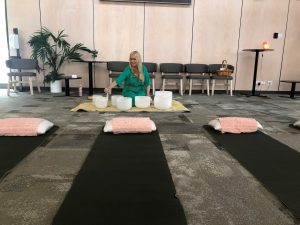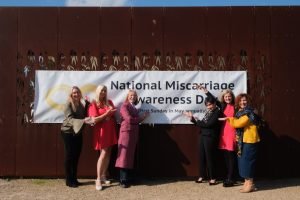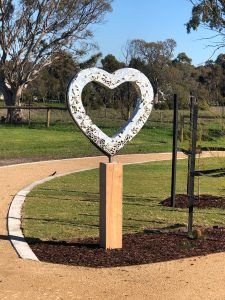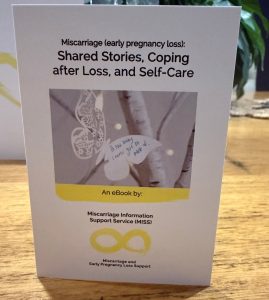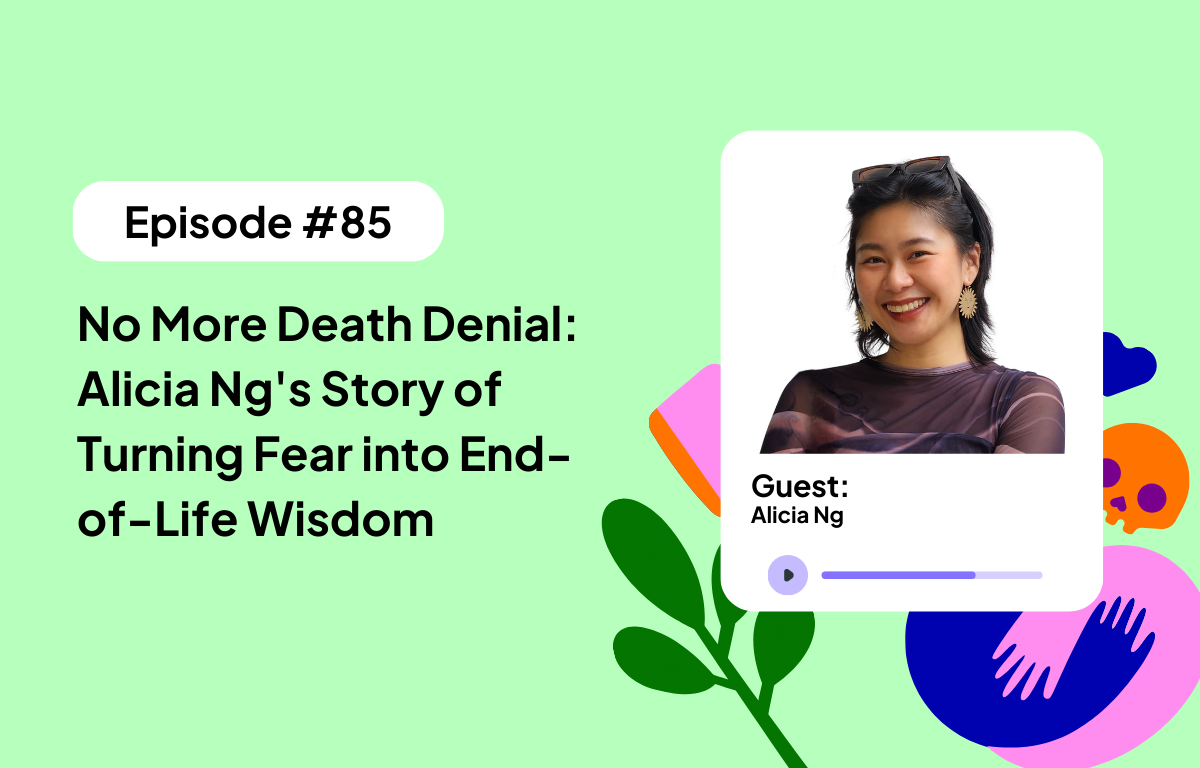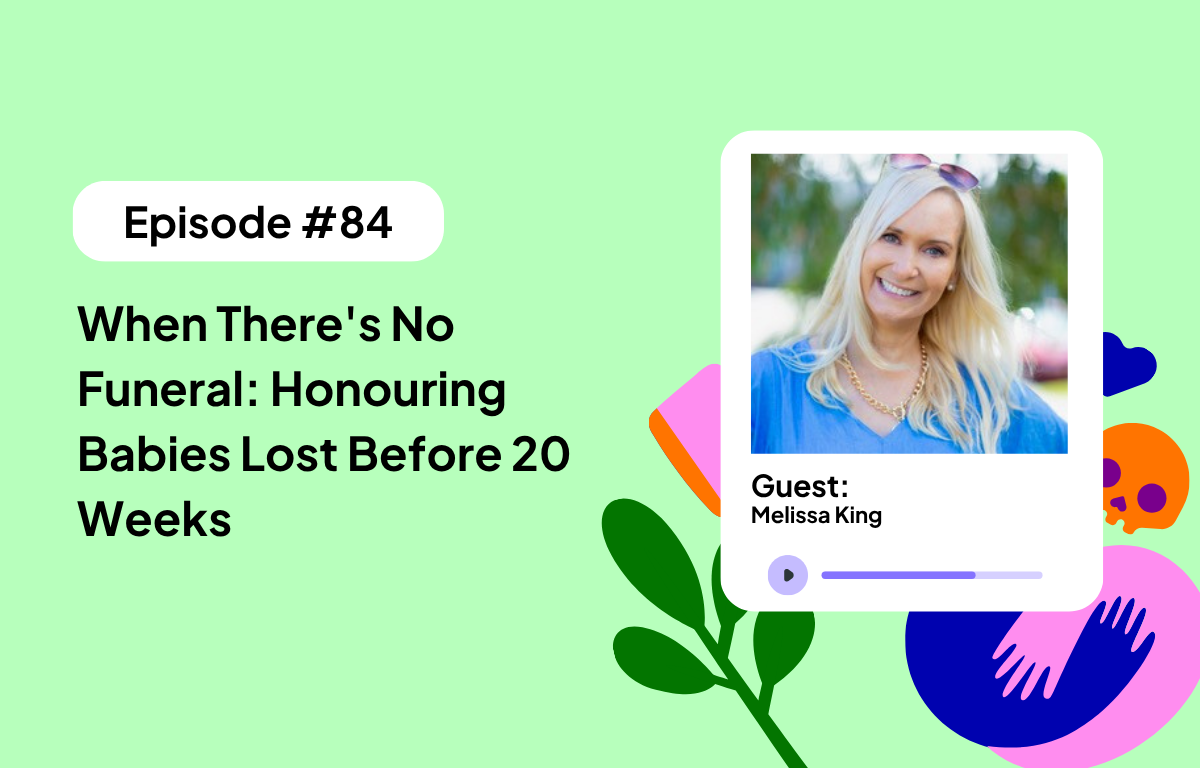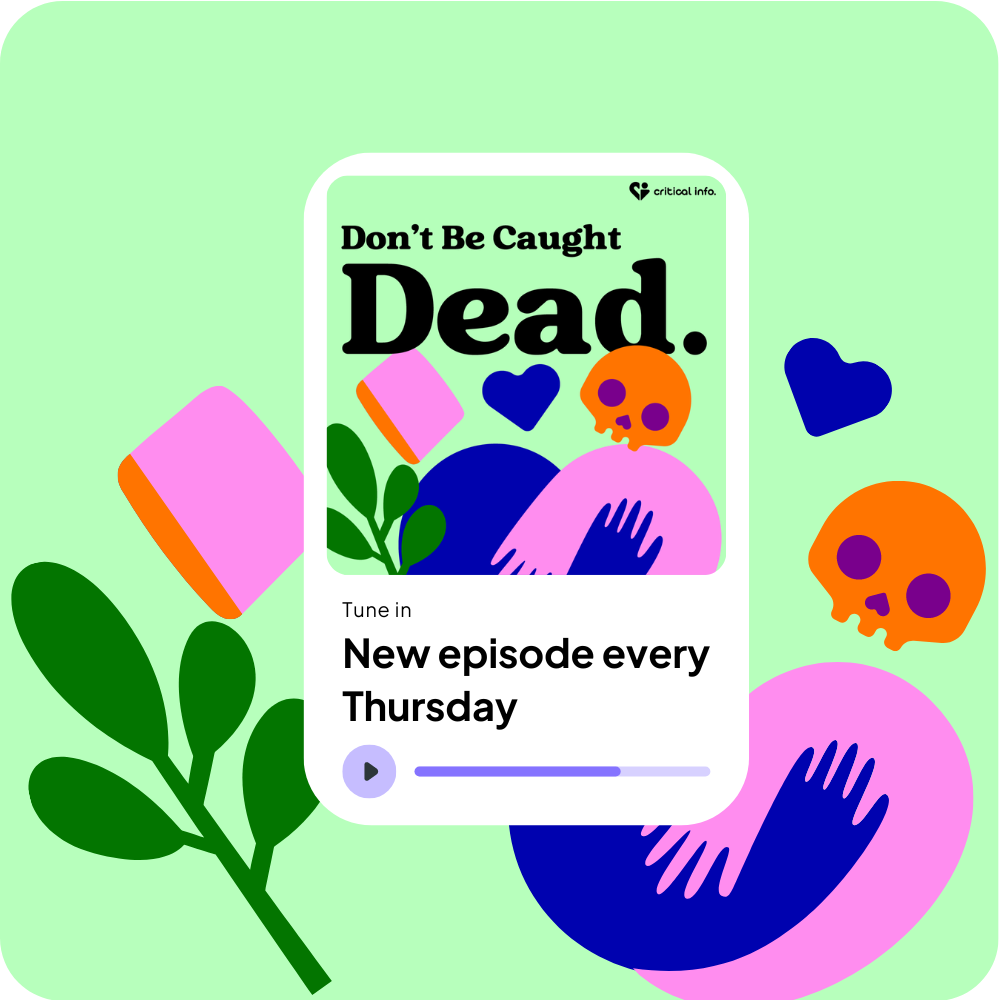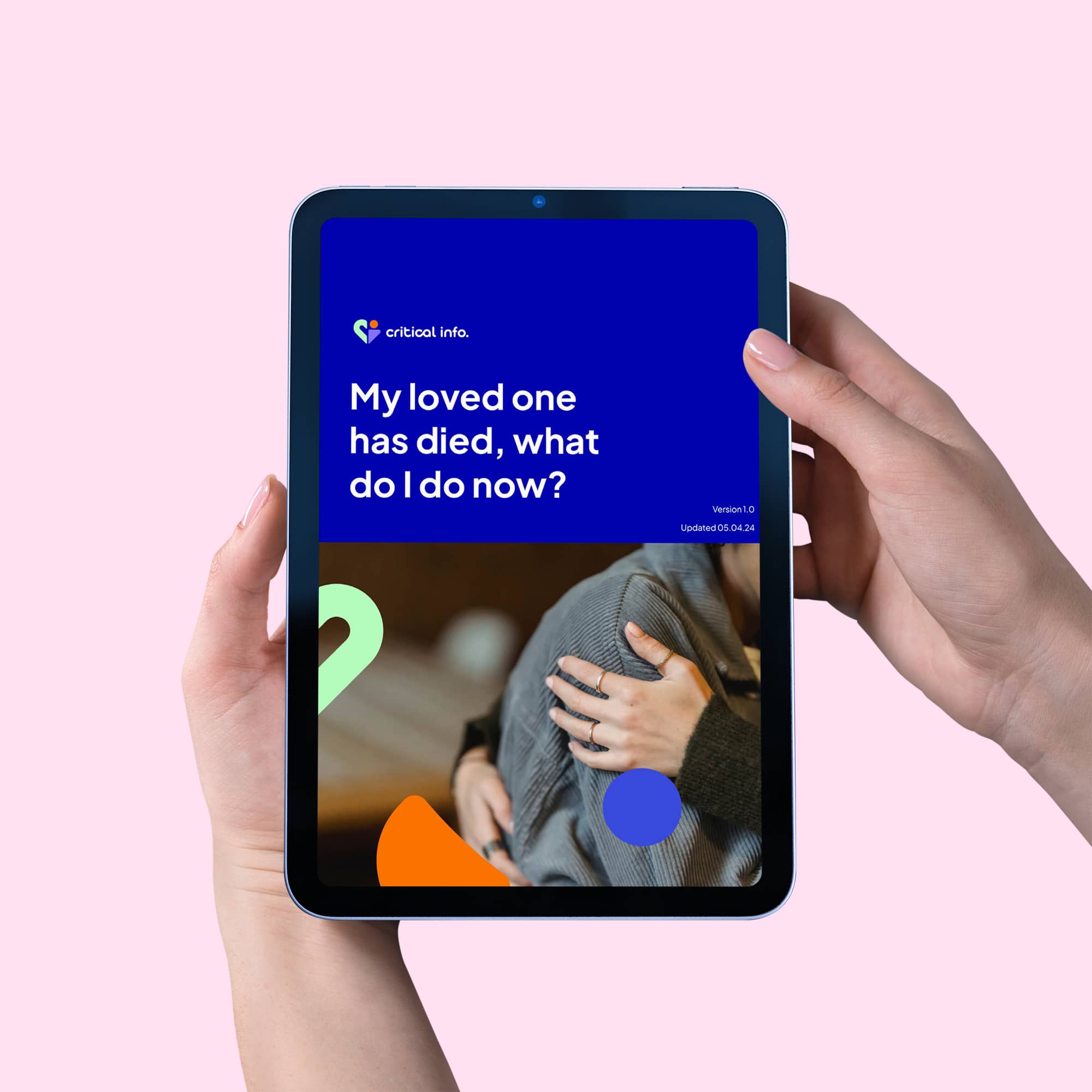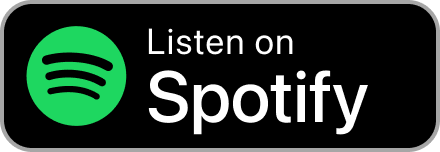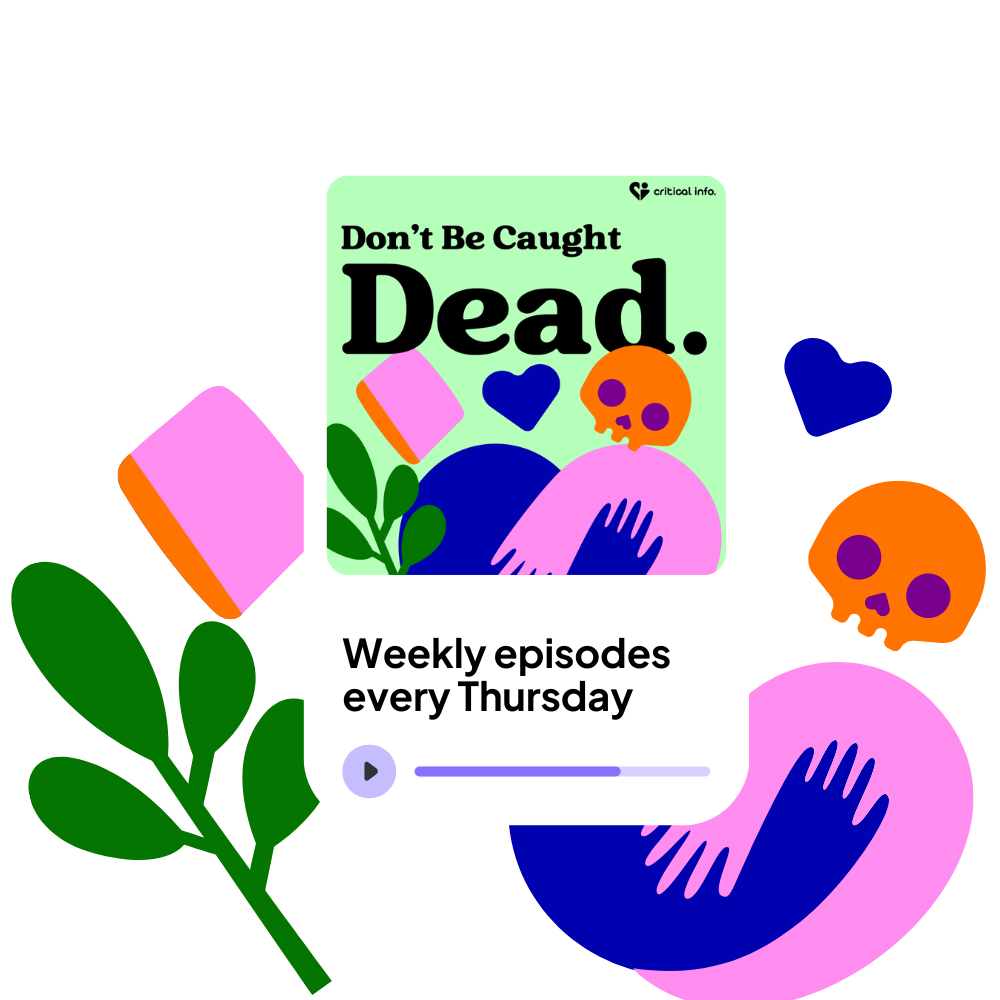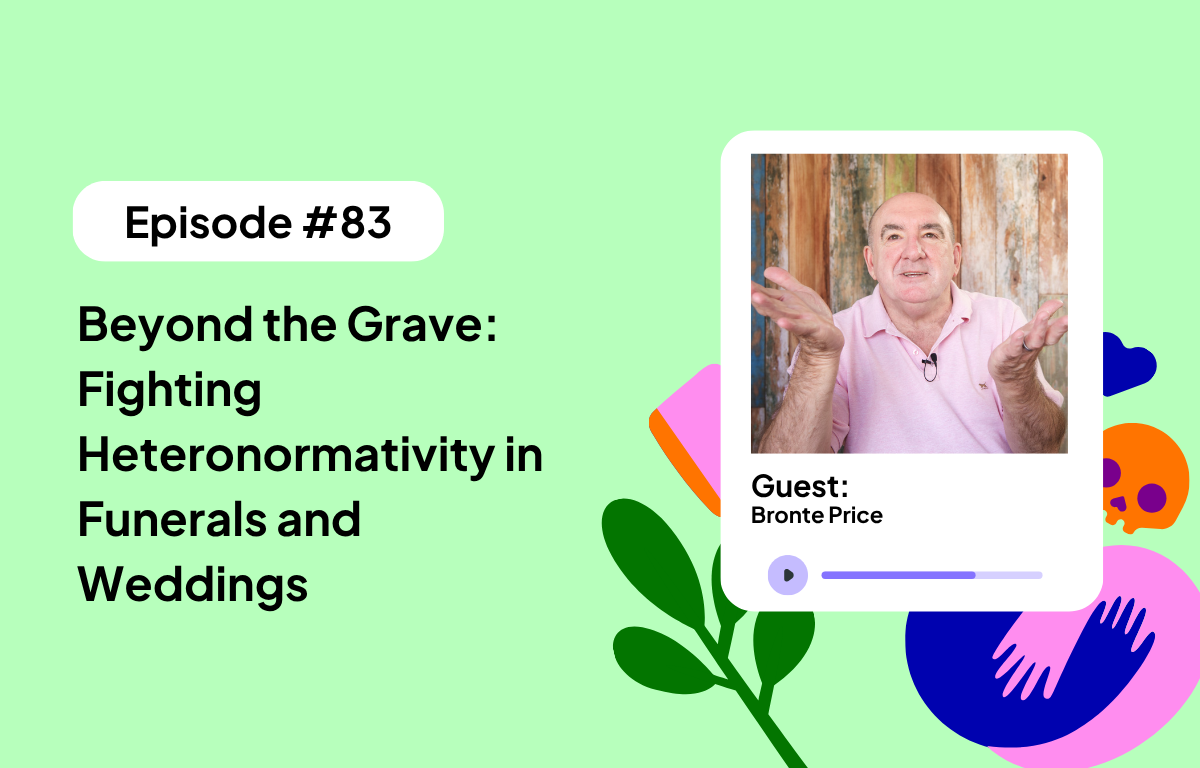Melissa: [00:00:00] I am gonna touch on that 12 week rule that we were told. Don't tell anyone that you are pregnant until after you've had your ultrasound after 12 weeks. I disagree with that. I think it's up to you who you want to tell 'em when you wanna tell. I let people know before the ultrasound. Had the terrible news that our baby had no heartbeat.
I let those people know, well, they already knew. Then they shared their experiences with me as well. Or I wasn't left isolated with no one knowing. So look, it really is an individual thing.
Catherine: Welcome to Don't Be Caught Dead. A podcast encouraging open conversations about dying and the death of a loved one.
I'm your host, Catherine Ashton, founder of Critical Info, and I'm helping to bring your stories of death back to [00:01:00] life because while you may not be ready to die. At least you can be prepared.
Don't be caught dead. Acknowledges the lands of the Kulin Nations and recognizes their connection to land, sea, and community. We pay our respects to their elders past, present, and emerging, and extend that respect to all Aboriginal and Torres Strait Islander and First Nation
peoples around the globe.
Today I'm speaking with Melissa King. Melissa is the founder of Miscarriage Information Support Service Incorporated, or Miss for short. Miss is a not-for-profit organization that was established to provide information to anyone who has been impacted by the loss of a baby through miscarriage or early pregnancy loss.
They aim to raise awareness of miscarriage in the wider community and its impacts on women, their partners, and their families. Miss was established in 2012 as [00:02:00] Australia's first miscarriage specific information and support service. They provide online information service, and have developed free resources such as care package bags, flyers, and resource cards to encourage people to access support after miscarriage.
Miss also aims to provide wellness programs for anyone impacted by miscarriage, early pregnancy loss to improve mental health outcomes. Ms. Liaises and works closely with a number of health and community organizations
thank you so much for actually being with us today, Melissa.
Melissa: It's a pleasure and thank you so much for having us on your podcast.
Catherine: So tell us a little bit about how you started, miss, why you started it. For me, I already know the story because we, we actually, I have a personal connection. Our sons went to school together on the peninsula, but share [00:03:00] with others how, how you started this, this support service.
Melissa: Well, back in thousand 11, my husband and I, ourselves pregnant, expecting our third baby. And it was such a shock to us when we went to our obstetrician and found that our baby had no heartbeat. So it was an absolute shock, and I suppose something that you don't expect or even consider might happen. So just through that experience and also through.
Attend appointments with professionals and gps and also gonna a hospital for a procedure. I just found that when I left and, and all stages, I was given no support information. I didn't know where to go to access any help. I wasn't sure who to call, what to [00:04:00] do. Support me through my experience and I went searching for information and looking at different websites, you know, Googling, what to do, what to look for, and I also did a lot of reading at that time, just trying to find out how other people have coped through their experience.
Catherine: And what did you find out during that process? What were the sort of things that you learned?
Melissa: I found that there was no specific service for early pregnancy loss. There were definitely other services for other types of later pregnancy loss, but nothing for early pregnancy loss. So I. Thought something needs to be done, uh, just to help other people that are in the same situation that my husband and I experienced, because there was really, yeah, no supports offered to me, no information given to me.
So in terms of physical information and, [00:05:00] and things like my procedure, that was definitely there. But in terms of emotional support. There was, yeah, there, there was really nothing at all. So I wasn't sure where to go and what to do. So I, I spoke to my husband and also my family and also.
Spoke about setting up a not-profit organization to help people after early pregnancy loss emotionally, and to also lead them into support services. So basically, yeah, miscarriage information support service was formed in early 2012, and we set up a committee of management. And we began, yeah, and we started to meet with other services to find out what other services were offering, just so we could compliment and work with those services that didn't have a lot of information about early pregnancy loss.
Catherine: And tell me what is you, you mentioned that you focused and you found that there was [00:06:00] quite a gap in early pregnancy loss, but there was other organizations that you were meeting with when you were trying to work out where you, you fit within the niche. Can you explain the landscape for someone who may be unfamiliar with where, what the landscape is and, and, and what is early pregnancy loss?
Melissa: Sure. So I might begin about with early pregnancy loss. So a definition of early pregnancy loss is a loss prior to 20 conception and a loss that is after 20 conception is novel called a stillbirth, and still is anything 20 onwards. There are services. So at the time when we were setting up miscarriage information support service, uh, I reached out to Red Nose Grief and loss in birth, and also the loss of an infant or child.
So we work closely with. We were setting up our services because they have a support [00:07:00] line that people can go, sorry, that people can call to speak with a counselor, include early pregnancy loss, but felt that there was this gap for people that suffered early pregnancy loss because often with early pregnancy loss, you may not know if your baby is a girl or a boy.
You may have a name for your baby, so it's hard to, I suppose it's a different experience, early pregnancy loss, because you don't get a birth certificate, you don't get a death certificate there. There is no, I suppose, or back then at the time when we were setting up this information support service. It wasn't, I suppose, acknowledgement of your baby's existence.
The positive thing now is the first deaths and marriages to have a certificate that people can access for early pregnancy loss, which I think is just a wonderful [00:08:00] thing that's been brought in so people can actually have.
Catherine: I can't believe that it's taken so long to have that acknowledged. What are the sort of challenges, what are the sort of challenges that you found when you, obviously it was, it was from your, you know, fed through your own personal experience of it, but why, why do you think that it took so long for, for people to acknowledge importance of early pregnancy loss?
Melissa: Was not a lot of information about how early pregnancy loss can affect people emotionally. And I suppose it possibly wasn't seen as significant as a, say a person that experienced a still or other type of loss. And I just feel it was just missing, you know, for the [00:09:00] grief and that process of trying to.
Find out, you know, where to go, what to do, and I think it had probably been forgotten. Whereas now, you know, currently there's a lot more acknowledgement of early pregnancy loss and also there has been funding that's been, I suppose, put towards some early pregnancy loss services. But were buried still a long way to go.
Catherine: What are the sort of statistics on how many people suffer from early pregnancy loss? Because I'm assuming that, you know, is it something that we have the correct stats on? Like is because of the stigma and, and, and the fact that we, you know, it took us that long to actually even acknowledge it as a significant loss in an administration way.
Talk to me a little bit about all of that and the layers that that puts on things and, and the stats, and are they accurate?
Melissa: [00:10:00] Absolutely. Well, they, the figures that they suggest are that one in four pregnancies end in early pregnancy labs. However, there have never been any statistics taken, so it really has been a guess of what the actual, you know, number is.
Is it one in four, one in five. There is now some work being undertaken in regards to taking statistics to get a clearer, I suppose, teacher of what the actual number is, but I would suggest it possibly is one in three pregnancy because what it doesn't at the moment, if someone might have a, an experience of an, you know, early pregnancy loss or miscarriage, that there are many other people that have multiple losses.
So they could have, you know, three early pregnancy losses, five, you know, 8, 10, 12. I mean, for some people it's absolutely devastating. You know, the length and the number of early pregnancy losses that [00:11:00] they experience. And, and also there's other things like I vf people going through, I vs have experienced early pregnancy loss.
It, it affects so many. Of all ages, and the statistics again, you know, are one in four, one in five. We'll see, you know, when statistics recorded what the actual numbers are because reality is that not everyone who has a a hospital might seek their GP or. They may experience the loss at home. It's just, I suppose one of the things is how it's recorded, and this had been advocating for a question in the census to be included about how many pregnancies have you had, because that would be a clearer number of, you know, the actual, all of the pregnancies that have been knit because there isn't a, there is a question around how many living children do you have?
So I just feel that there's [00:12:00] this big gap in, you know, not knowing, I mean currently, but also previously, you know, how many, how many early pregnancy losses there have been.
Catherine: That is phenomenal. Those statistics and the fact that we don't have an actual number. I love the fact that you. To actually include that question in the census, because that would be mind blowing to know that when, you know, I've seen you speak on this topic, Melissa, and how many people come up to you afterwards and, and share their personal story.
Melissa: Always. I, I always have people come and approach me and it's always, I suppose it's different people. It's. It can also be men that have been impacted. It can be sisters that their sisters have had an early pregnancy loss. It can be their partners who haven't known what to do or what to [00:13:00] say, but the reality is the loss impacts them as well.
So that's one thing. It's not just about the person that's had the early pregnancy loss. It goes much further. It's about, you know, that person, the partner and family, and also children. We're looking forward to meeting their little baby brother or sister and then there is no baby. So that's, yeah, very reaching.
And I suppose that's why, you know, we need to do more in this space to, to start those conversations. But also an important thing is to educate the community about how to respond, because people often dunno how to respond. And we would say, you need to. A really open, sincere, and empathetic way, and people try their best, but the best way to respond is by saying, I'm sorry.
I'm here to use, you need me, I'm here. I suppose often in society we put a silver lining on [00:14:00] things, you know, when people pass away, so if they're older, it's, well, at least they had a good life. But one thing we always say with early pregnancy loss, birth, the loss of a child. They never, ever say at least, because that's minimizing the person's loss.
You know, and unintentional people don't mean to, to say things that will hurt people. So we always say, you can just say, I'm sorry and I'm here for you. That's, I suppose, the best way to respond or how, how can I help you? What can I do? It's about being that supportive person and being there and they know, um, you can be there for them.
Catherine: That was, I'm glad that we went there because you know, I, I remember when, I've only got the, the one, a child, a son, and I, and I haven't ever experienced pregnancy loss, but we did have a, a, a scare with Ethan and I just remember when we met and when he, I was hearing you speak about all of those things that [00:15:00] we are told when go through pregnancy.
Bear in mind, my son's now 21, same age as yours, so we are going back a bit in, in time. But you know, I was told, you know, don't, don't mention your pregnancy until you're at 12 weeks. Don't share it. Keep it to yourself. What are the other bad things we were told and stupid advice, and what are some of the things that people have said that we, we probably shouldn't, given now what we know.
Melissa: Yes. I think I'm gonna touch on that 12 week rule that we were told. You know, don't tell anyone that you pregnant until after you've had your ultrasound after 12 weeks. I disagree with that. I think it's up to you who you want. Tell them when you wanna tell. The positive with me is I, I did let people know before the 12 week ultrasound, and so when they.[00:16:00]
Terrible news that our baby had no heartbeat. And I let those people know, well, they already knew then they shared their experiences with me as well, or they, they knew I wasn't left isolated with no one knowing. So look, it really is an individual thing for who you wanna tell if it's your family. Look.
And some people do wait until that ultrasound, but I suppose if there is a loss. It's a lot harder to, you know, let people know because they never you and didn't, you know, see you experiencing that joy of being pregnant. So,
Catherine: and where be, where did that advice come from? Was it obviously based in medical kind of.
You know, land that they decided that it was 12 weeks and, you know, but the impact of not sharing that and then if you have a, a result that is, is not, you know, [00:17:00] where you thought you were going to be. Even if there's complications along the way. Like it's not an easy ride at any stage along a pregnancy, is it?
So the more you can gather your crew, I think that the earlier the better.
Melissa: I totally agree with you, and I think it, it's up to you who you wanna tell, whether that's, you know, close family, close friends, or, I know for a lot of people they might announce it if it's coming up to Mother's Day or Father's Day and they're still below the 12 weeks.
A lot of people will announce it on those days, and I think that's great. Yeah, it's an individual thing, but if there is that loss again, then you do have this knowledge that you know that people.
And, and that you know when you are grieving that they will understand and know what you've been through and be there for you as well.
Catherine: And tell [00:18:00] me what are some of the stories if you're comfortable sharing about other people who have gone through similar experiences and, and how have those stories informed how you've developed, what the services are that Miss offers to the community?
Melissa: Sure. Well, I will share one thing. I've got here the the Miss ebook, so this is a little card and then you open up and scan the QR code. And that takes you to an ebook of 13 shared Stories of parents, and that includes early pregnancy loss, stillbirth, uh, termination for medical reasons as well. Like it's a fantastic read in it, it's about the, the stories of those people, but also how they cope through those times and also how they looked after themselves.
So it's a really important tool and one thing that we found is as the stories go right back, many years for the people that wrote them, so back in [00:19:00] the, say the late sixties, they were told not to, you know, get on with it. There was nothing back then. It was get on with it. It was really, you know, this, this thing is normal.
Well, it may be a normal occurrence, but that doesn't mean that there is no grief. And, you know, no grief with the experience and what the, the stories in the book do will show the different, I suppose, services and things that people access during that time. And I suppose, you know, what they found most beneficial in, in helping them with their grief as well.
But there are, yeah, there's different stories of, I suppose, yeah, how, how people have really helped to move. That doesn't mean that you forget about your baby because your baby will always be a part of you, but I suppose that's knowing that we have to live in our life, but how [00:20:00] to honor and your baby while living.
Catherine: And tell me what is the sort of, in those stories, is there. A theme or a series of or, or what is the stigma associated around early pregnancy loss that people have experienced during those, those different experiences and stories that you've shared?
Melissa: I think it's been, a lot of people have had, even medical professionals probably say things that weren't.
Supportive that we dismissive. And I know that there's amazing work being done, especially with universities and in in the medical profession about educating professionals about how, you know, how to respond, what to say, because back then it wasn't, you know, that emotional side was never spoken about. So it does some of the experience.
Do you talk about that lack of empathy from some of the medical professionals? As I said, now [00:21:00] there's this whole load of education going on in that space, just so you know, those people can be aware of the emotional side. So that is, I suppose, one thing, but saying that not everyone experienced that. On the other hand, there are stories that people had absolutely wonderful supportive experiences from, you know, gps, uh, to nurses, um, you know, in the hospitals and, and that access care.
As well that really benefited them, but we just found that most people didn't have any information or resources. They didn't know where to turn, what to do, especially if they were in a hospital and they left not only without their baby, but without any information or any pathways to getting support.
Catherine: And can you just sort of map that pathway out for someone who may never have been through this experience of pregnancy [00:22:00] or early pregnancy loss?
Like what does that look like? Like you went for a checkup with your husband and, and, and I'm assuming that's how you found out the result that your baby didn't have a heartbeat. Like what happens from there?
Melissa: Manage it medically. So some people might be told to go home, but there is a procedure that you can have done in hospital just as opposed to quicken that process. Or there's also medication that can be taken, but that can be a drawn out process waiting for that to happen. So there's what's called A DNC.
That's when you go to hospital and basically what they do is a procedure and that is normally, I suppose, the quickest way. Some people can't cope with the fact that they're, you know, they're having to still, you know, people are coming up. I know what [00:23:00] happened to me.
We had, it was my daughter's birthday party and you know, we told people obviously that we were having a baby and on the Thursday was a day about ultrasound and we went, yeah.
Terrible. And then her birthday party was Friday, so the Friday I had Oh
Catherine: wow.
Melissa: You know, well, most of them knew and they were all saying, you know, congratulations. Fantastic. And I just had to, I suppose, take a deep breath and just let them know that, yeah, I'm pregnant. Still have that, we've lost our baby. And that was really, really difficult because I had to. Really put on a brave face because of my daughter's birthday party and I had all of the children and it was yeah, a really, really tough [00:24:00] time.
And because that was over a weekend. Yeah. I didn't, you know, my DNC wasn't planned until the following week.
But for other people, there is medication that can be taken, but it can be a longer process. And I have had, you know, people contact me about that and it, it, yeah, it's, I suppose, a waiting gain for how long that might take.
Catherine: And Melissa, you can, you can tell me to sort off, you don't have to answer these questions at all, but how did you know that is a really challenging contrast between, you know, a children's birthday party that you are having to, you know, have 20 kids there to celebrate your daughter's birthday, but yet knowing that you had another child that was unfortunately not gonna celebrate a birthday, how was.
How was that feeling for you in those [00:25:00] days where obviously you were still carrying the, the baby, but yet you knew that there wasn't a heartbeat?
Melissa: Absolutely. It was. I suppose we were in shock. It's just something that you don't consider might happen. I mean, we hear about, you know, things can happen, but it's just not even something that you.
Even think about, and for us it was extremely difficult. Yeah, we had not only that one birthday, but there were also other family gettogethers. And then, you know, the hospital had said to me, if you experience bleeding then you need to contact the hospital. So, you know, it was really, really difficult and a hard time.
But we were lucky. We had fantastic supportive family and friends. There. And also it was comforting when other people were, I suppose, sharing their [00:26:00] story with me because at the time you do feel like you're alone. You really feel so alone and isolated. I think, and that's one the reasons for the book is that they're not.
Alone, and there is, I suppose, health and support out there, but if you can draw on people like your family and friends, it can really help to know that people are there if and when you need them.
Catherine: And tell me, in that sort of first few days, I'm assuming that you know, there was no escape because you did actually have the birthday and family gatherings, so you had to Yeah.
You know, that was obviously a decision that you made to, to be very open and honest with them. How did you, how did you tell your kids?
Melissa: Well, it was quite difficult because when we announced our preference, we actually videoed their reaction and it was, [00:27:00] you know, my boy, I think it was said to every wish.
I'd been wishing for a, you know, a baby brother or sister. So like it was absolutely devastating to hear that. And we had, yeah, we let them know. And what we did was involve them in what I would call in a ceremony every year. So we would go and connect with our, they've always been involved. I talk about that our baby is always with us, and every year I buy a bird, a little bird, and I've got a tree full of birds.
So, and, and our baby also might get a Christmas decoration. Yeah. There's lots of ways that, you know, that we remember. And, and one of the things we've missed that we advocated for was a memorial area for people to go to because with early [00:28:00] pregnancy loss. Normally is no funeral and there normally is no place to go.
Some people we do provide, we've got seedlings that people can plant, but often, you know, we don't wanna plant those in a garden because if you lose house, then how do we, you know, if it's a, a tree or something, how do we move that? But we often say to people, the plants and seed po. So you can take them. We approached Southern Metropolitan Cemeteries Trust and we received some funding, some federal funding for AC at a beautiful piece of artwork.
And we asked them if they would create this memorial garden that we hoped for, for anyone impacted by early pregnancy loss, and we were absolutely delighted, and we worked with them for, for many years to create this space. And to have a, I suppose, a really thoughtful a, a thought, a place that I suppose for people with [00:29:00] early pregnancy loss, so what it would look like, how it would feel the right location, and, and that was open this year in May for National Awareness Day, and people can actually have a token at the Butterfly Garden in memory of their baby.
Catherine: That is so beautiful and, and I have to say that it was an honor to be there at the opening of the butterfly garden and the attention to detail and the plantings. You know, I, I have to say the, the botanic gardens in me comes out and, and I just think it's such a sensitive planting selection that you've chosen with little Billy buttons and everlasting daisies and beautiful kangaroo paws.
Just gorgeous children of inspired plantings. They're just so gorgeous, and the kids were certainly, you know, loving to, to squeeze and, and, and touch the, the plants on the day we were there. Tell me a little bit about the design [00:30:00] process and, and what sort of things that you needed to consider in relation to the design and, and how.
You came up with finding the artist to, that you commissioned for that beautiful sculpture, and tell us a little bit about that as well.
Melissa: Sure. Well, we work very closely with Southern Metropolitan Cemeteries Trust, and I found an area of land. Memorial Park and with that land I approached the committee and so they were absolutely fantastic in involving us Red Nose.
We had, you know, other providers, miscarriage Australia in the design and you know, the feedback for what? It might look like and then it went out and they did contract designer, so things like the planting. So Southern metropolitan conservatories Trust did a lot of work in finding plants that attract butterflies.
So, and it was named the Butterfly Garden. So it's, it's a beautiful [00:31:00] place. We wanted to incorporate, I suppose, some curse and spirals, like the infinity symbol, just for that everlasting love. It keeps going on. And so that was also incorporated into the design and all the, the grant for the artwork. You know, we always said, you know, when you.
Or when you lose a baby, they're forever in your heart. So we had Richard Dawson and Melissa Turner. They're from Melbourne Heroes, and they basically, we gave them a design of what we wanted. So it was a. Something you wanted. Selfie,
beautiful healing gem and it
pieces of mirror representing [00:32:00] those shattered dreams for your future.
Catherine: It is such a beautiful garden. Can I ask how you came up with the name Butterfly Garden?
Melissa: So that what we did was at the event for National Ms. Page Wednesday in 2024. What we did was ask the community, so the people who that we're connected with that Southern metropolitan Bertuse trust they have.
I see a lot of organizations who also, they got feedback from, and I know one of the people that put on the tree, you know, we, what we did was we all wrote them on. A beautiful, a little heart, I think a lot of the time, and we hung all the names on a tree and there were so many different names, but basically it came down to a short handful and then there was that consultation with the community and yeah, the [00:33:00] name that was decided upon after all of the consultation was the butterfly and the tokens.
You can have. Iry, which is like a cocoon, a shape. So, you know, that's, that's the beauty of having, you know, the butterfly garden. It's, it's reflecting all aspects. Yeah. From, from the plant to the, the different stands, the tokens, uh, on. So it was definitely a long process because we wanted to make sure that we consulted with all communities.
And yeah, the butterfly garden was definitely the right choice.
Catherine: And it was also opened with a a, a welcome up to country or acknowledgement of country from Auntie Jillian West as well, to, which was really beautiful and, and her and her niece shared a story as well, which was very powerful and very [00:34:00] moving about their personal connection and experience.
Melissa: It was absolutely beautiful. And yeah. Auntie Jillian West from, yeah, Bunong Land Council has been, yeah, providing a welcome to Country at many of the National Miscarriage Awareness Day events idea. Her niece's story was just beautiful as well, sharing her experience.
Catherine: And tell me, you mentioned, we've talked about the butterfly.
You mentioned earlier that you buy birds for your baby. What, was there something that happened around the time that your baby died that has had that connection with birds? Is that something you're comfortable to share?
Melissa: It's. Birds. I always have this connection with birds, so they, they come to me. I feel like I live, if I had to name my house, I'd call it the bird house because [00:35:00] I have birds coming to visit all the time.
One incredible moment for me was when I, I often visit the butterfly garden and there was this one day before the launch and, and his opening. I decided to just drive my car down and I wanted to take some photos, beautiful forever in my heart sculpture. And as I was walking down the path, this little bird was following me and there was no one else there, just me and this little bird, and I thought, oh.
Like a little visitor for me that I kept walking and got out my camera to take a photo of the heart, heart sculpture and the bird flew onto the heart art sculpture just where I was taking the photo. Yeah. Something for me. Birds definitely bring me comfort and with a lot of people [00:36:00] after they've lost love on it might be butterflies.
So we'll have these different symbols of what, yeah, what, what? That animal or you know, what that creature is for us. But for me it's definitely a bird.
Catherine: That is so beautiful. Thank you so much for sharing that. And weirdly, a little bird just actually flew past my window as you actually were telling that story, which is quite amazing considering we have minor birds in our area here and, and normally they're the only thing around this place, so, so that was rather uncanny timing.
Melissa: Wow, that is amazing.
Catherine: And tell me, you, you've shared about the ritual that you have with your kids that has been something that you do on an annual basis. What are some of the rituals that people who, you know, can't go to a garden that you've, you've, you know, the, the butterfly garden that you've mentioned.
What is something that, those rituals that [00:37:00] you know, you've found people mentioned that they can do in their own home? That's how they could honor their loved one that they've lost.
Melissa: Absolutely, definitely lighting a candle either on, at maybe their baby's due date or on the day that they, their anniversary that they lost their baby is definitely one.
They say that lighting a candle brings those spirit closer to you, so that's definitely one that people find comfort. We also provide a make available care package bag. So one of the things is wearing an infinity necklace, just again, we get feedback on the, the items in the care package bag. And often people say that the, you know, the necklace or we have infinity tin as well, just, you know.
They can wear that and feel that their, yeah, their baby's close to them. I also think the early pregnancy loss certificate is such a great way to remember your baby. [00:38:00] Whether you have that display in a frame or how, you know, whatever works for you. It's, it's just, again, that reminder that your baby, even though they're not here today, that they were an important part you of your life, and I suppose still are because they do remain.
We still carry that piece of them as well. Yeah, definitely plantings as well. So yeah, often people will, we do have, I've got some seeds, so we've got southern metropolitan up, these little seeds that people can plant in a pot, but also. They can have a to at at the butterfly garden. They don't have to visit that, but that's something that can be personalized with your baby's name or it might be baby then your surname and a date and maybe some words as well.
So even having that there, just knowing that even if you can't get there, your, your [00:39:00] baby's remembered.
Catherine: And tell me a little bit more about the other resources that you have managed to develop to fill the gaps. Because we've talked about the beautiful books so people can read stories so they don't feel alone.
You've mentioned the care package, so can you tell a little bit more about the care package?
Melissa: Sure. So we have care package bags full of information. So one of the, I suppose the main things. For me and the committee in developing information was to have hard copy resources because there is, there are resources online, but sometimes, especially if you are on social media, so Facebook or Instagram, and you've just lost your baby.
You may not wanna go onto social media because people are announcing pregnancy and they're post posting photos at their babies and their little ones. So us, it was really important to have something [00:40:00] physical that they could take away. So resource. So we do have,
Catherine: can I just say, that's amazing, Melissa?
'cause you know, it's that, that classic algorithm because if you've been expecting a child, you'd be probably, your whole algorithm will be geared to mm-hmm. Pregnancy, all of that sort of stuff. So that's the last thing you wanna be confronted with.
Melissa: Exactly. That
Catherine: is
Melissa: so clever. Exactly. We just felt that it just, you know, it's often people might go off social media, but like you said, they're getting different things they may have signed up for, you know, you know, baby newsletter.
I mean, it could be anything and it's not what you, it's just not what you wanna see and feel. I mean, of course you're happy for other people and their families, but it can be really difficult and so emotional and it hurts. It really, really hurts. And you know, seeing all those things or having those emails, sometimes you [00:41:00] just need some time to yourself to grieve, you know, to actually to grieve that loss.
So we created, so we have any information flyer. We've also one to the family. So that's, you know, about what to do and say. But we also have also, this one's for the partner. So for the partner, the partners often forgotten because a lot of people, a lot of the focus is put on the person that was pregnant and we just felt like it's.
So obviously it's about that person too, but it's also about the partner. So they're grieving too. And I do, you know, know of stories where it's affected the male much more because, you know, they weren't included. It's, you know, oh, the this person, that person, but they're sort of the partners ignored. And that's something that we didn't wanna have.
So even in designing our colors for this, we wanted to go the yellow. Because you don't, once your baby was a boy or girl, [00:42:00] but we wanted to make this accessible by men, women, all sexes, and make sure that this was accessible to everyone. And that's why, you know, we're called partners. It's really important because it could be people having I Vf
so we wanted to make this accessible for everyone.
Catherine: It makes it very, uh, gender neutral, which is really important in this space.
Melissa: Absolutely. And with the, the information, it also, pardon me, for the partners just gives them things that they can do as well and for families and friends as well. It's, you know, it gives a list of helpful things.
You know, both people involved.
Catherine: And Melissa, do you mind reading perhaps like one or two things out of each of one of those? So perhaps the, the partner's brochure and we'll have links. These are all resources on your [00:43:00] website, aren't they?
Melissa: Absolutely. Sure.
Catherine: So we'll have all of this in the, the show notes together with a link to all of the other resources that have been mentioned.
But if you can read out the one for the partners and then followed by the one for the families, just so people at home can get a feel for it.
Melissa: Miscarriage, early shared experience person may respond, grieve differently.
May you still grieving yourself. You wanna support partner. May a stressful time as you may have additional responsibilities and you both may be under pressure to work. The silence that surround miscarriage can also make this time extremely difficult. As often family and friends do not know what to say or how to respond.
Experiencing the strong emotions of grief and loss could also very be very challenging for you and as a shared experience with [00:44:00] your partner. There may be times when you find it difficult to find the words in action to support each other during this time.
Acknowledge your partner's feelings and to understand that everyone breathes differently.
Catherine: Wow.
Melissa: So that's for the partner.
Catherine: That's such a reassuring thing to be reading at that time. You know, because it is, it is, uh, a very unwritten space and, and certainly it has been historically a very taboo subject.
Melissa: It has.
Catherine: I can't thank you enough for sharing your story and being really open and honest with us today. Melissa. Is there anything else that you feel that you'd like to share?
Melissa: I'll just have a look here. I've got one of the care package bags with me, so I thought I'll just run through
Catherine: some of the Yeah, that's great.
That's really, really good.
Melissa: They do vary the care package bags just because we may be funded for a product in a certain area, but what we do is put on the [00:45:00] website what's available at the time in their chair. Package bags. So, um,
and
Catherine: that's actually a really good point to, to raise, like, how, how are you funded?
Uh, you are a not-for-profit charity. You are supporting a clear gap in society at the moment of people who are under serviced and under supported. And so how, how do you get the, the funding?
Melissa: Um, it has been. We definitely have applied for funding and over many, many years, and unfortunately we've not received federal funding and, and also state funding.
We do apply for small grants through the community, so through Ton City Council. They recently funded some affirmation cards. Also the Infinity PIs, which is great. Everything, sorry. Mornington Shire also funded an information [00:46:00] card for us, but everything else in the care package bag, pardon me, we try to source, so we have to go banking, analyze, provide us with pens for the care package bags.
We have, uh, notepads, which people can use as journal journals, and they've been donated to us as well. Again, we have the received donated by Southern Metropolitan Cemeteries Trust. We have, uh, received some donations where we purchased the necklaces through and iter. You know, we're always constantly looking at all different ways that we can support a community and anyone going through early pregnancy loss.
So that they can have one of these care package bags. So yeah, we aren't funded. Yeah, we don't receive any ongoing funding at all. So it's been, I suppose, you know, a constant struggle applying to funding grants to do that. But also we promote our [00:47:00] services through our different community activities. So we had a, I went to the grief retreat and we have an information store there.
Another event recently in Mornington where we, and we try to reach as many people as we can
Catherine: and how. How do you keep getting up out of bed every morning when you know this is based on a personal story of your own loss and grief, and then it is challenging, you know, to be running a not-for-profit. What's the thing that keeps you going and keeps you motivated, Melissa?
Melissa: I think it's definitely working with the committee to work out how we can make even more of a difference. So I think in the future. To run some support programs. So myself and another one of the other previous members undertook [00:48:00] bereavement. Bereavement courses. Also understanding grief. So that's something that we'd like provide in the community and through that about connecting other people with that same experience of loss.
And then hopefully that informal connections will also come out that another part of my life, I run meditation sessions. So again.
To people that they can, I suppose, try to just have, take their mind off, you know, for a little while, give themselves a break through their grief and focus on themselves and selfcare. So definitely in the future we wanna provide programs for both. , We definitely wanna have something not only to women, but something that all people can access to help them with their, but also.
Start those support networks, hopefully through people that they might meet at [00:49:00] events and we definitely have some more ideas. Yeah. Planned for the future that build on the work that we're already doing. But definitely one of the things is getting more out there in the media around. I suppose how, yeah, how people can respond around the educating, because I don't think people are always gonna share their story if they're not meant, I suppose, met with that empathetic and compassionate support.
And that's, and people all are empathetic, but once they might say something like, there's definitely, you know, things that people might say, well, at least you can, or at least you've got other children. I mean, it doesn't help. And that sort of. From wanting to respond more. So you get that over and over again.
Then you sort of become more wary of sharing your story because that sort of shut down. You know, then it's harder next time to share it again. And if there's another, you know, comment and people don't intend [00:50:00] to create any harm, it's just being educated around what the right words are to say. And again, it's, you know, I'm sorry I'm here.
You lemme know how I can help. If you need anything, let know. You don't have to even. Yeah, you just need to be there for person. So that's really, I suppose, my main advice for everyone going through this. And it's, it's a hard thing for people to understand unless you've been through that experience. And I know I definitely didn't understand the, the gravity of the grief, grief and the depth of the grief.
Before I went through this experience myself, and I mean, I'm lucky, I've got a supportive husband and supportive family and you know, supportive parents and like I'm so lucky that I've got two children and for me, I think one of the most difficult things was not being able to all pregnant. I remember my, after the loss of our baby, my gp.
To me it would really help you in your healing. If you [00:51:00] are able to have another baby, like it won't replace the baby that you've lost, but it'll help with your healing. That's for my husband and I. Yeah, we weren't able to fall pregnant again, so, you know, healing's been, yeah, it's been a difficult and a long journey, so it's over 14 years now, but I never, yeah, never ever, you know, forget our babies, you know, what would be their birthday?
Like, that's a really special day for me and, and we, yeah, we often.
Carriage also.
So also,
uh, so similar to this yellow one. Pink and blue is the colors for October 15, which is international pregnancy. The lost day. So in the care package bag, you'll get [00:52:00] one of the, well, at the moment, the pink and blue ones, the yellow tin blue got seeds and yeah. One of the main things is our feedback form that we give, because what we wanna know is what are the most helpful things that people are finding in their care package bag that has helped them the most?
That's what we'll use to work on our care package bag if there's anything missing. So one of the people said affirmation cards would be really helpful, so this is why we've got affirmation cards in there. Another thing, we've had some feedback that permiss slips would be really helpful. So affirmation something that allows you to give yourself permission to do so If you are invited to a baby shower and it's too typical for you or a child's birthday.
Permission to say no. So you can a permission slip and say, it's okay, I don't need to go. So that's something that we wanna get funding for. We don't have permission slip, but again, that came [00:53:00] through that feedback in the care package. So how can we enhance it? Like Yeah, give us feedback to how we can receive better.
So we're just, yeah, that that's what we've been working on. Just, yeah. Adding, yeah. Anything that would be beneficial and to help. Yeah. Anyone through the experience.
Catherine: That is so beautiful. I really love that idea about just being kind to yourself and yeah, you don't have to actually do everything that you may be thinking you're expected to do, and I love the idea of those permission slips, how we will include the links on how people can also support you as well, because the work that you're doing is so vitally important.
And again, I can't thank you enough, Melissa, for being with us today.
Melissa: Oh, Catherine, it's been an absolute pleasure and I'm so grateful on behalf of the Committee of Miscarriage Information Support Center to actually talk about early pregnancy loss and share some of what we're [00:54:00] doing in this space. And yeah, thank you so much again for your support of the The Butterfly Garden and yeah, for having us on your critical info podcast.
More than welcome. Take care, Melissa. Thank you.
Catherine: We hope you enjoyed today's episode of Don't Be Caught Dead, brought to you by Critical Info. If you liked the episode, learnt something new, or were touched by a story you heard, we'd love for you to let us know. Send us an email, even tell your friends, subscribe so you don't miss out on new episode.
If you can spare a few moments, please rate and review us as it helps other people to find the show. Are you dying to know more? Stay up to date with. Don't be caught dead by signing up to our newsletter and follow us on social media Head to Don't Be Caught dead.com for more information and loads of resources.

